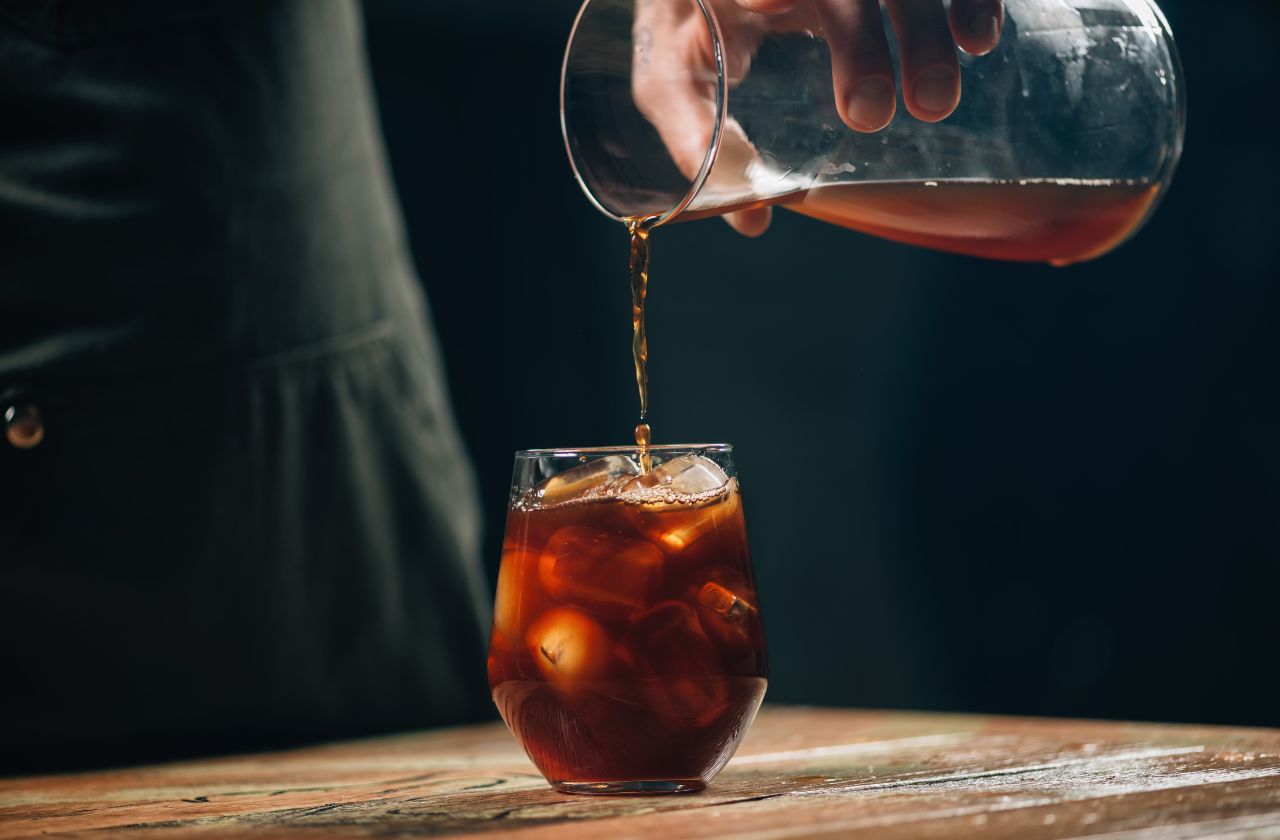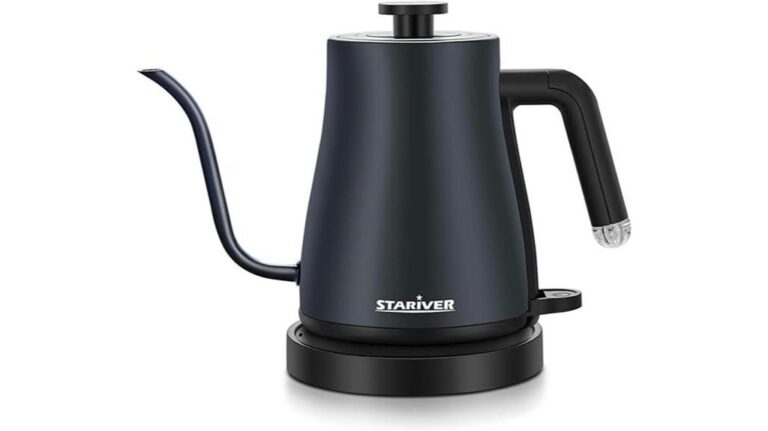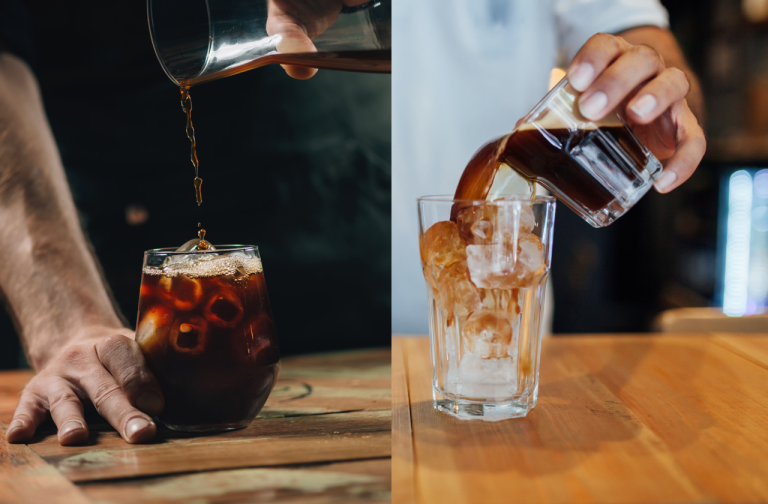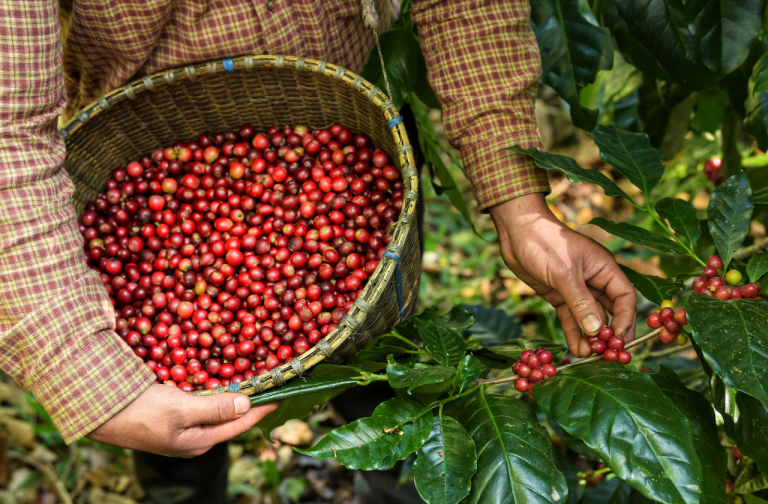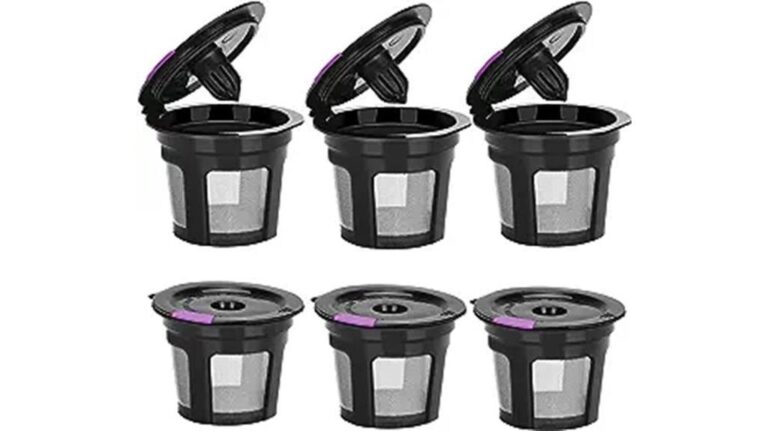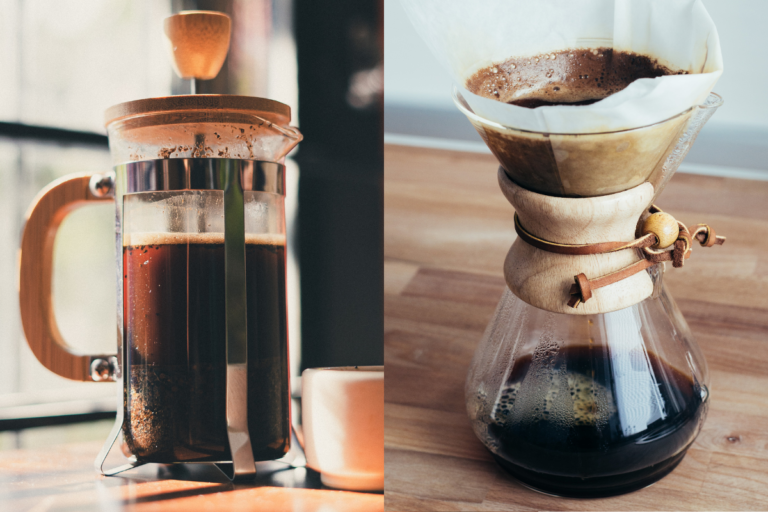The Best Coffee For Cold Brew
As coffee enthusiasts and connoisseurs know, there are few things more satisfying than a perfectly brewed cup of coffee. And for many, cold brew has become a preferred method of coffee preparation.
The best coffee for cold brewing should be coffee with low acidity and bitterness, full-bodied, smooth texture, and flavor notes that complement the brewing process. Arabica and Robusta coffee beans are the most common beans used for cold brew, but the roast level also impacts flavor.
While the process of cold brewing coffee may be simple, the quality of the coffee used makes a significant difference in the quality and taste of the final product. Choosing the right coffee for cold brew is crucial for achieving the ideal taste and texture.
What Is The Best Coffee For Cold Brewing?
The process of cold brewing coffee involves steeping the coffee grounds in cold water for an extended period of time, resulting in a smooth and refreshing coffee concentrate that can be enjoyed on its own as an iced coffee or mixed with other ingredients.
We will explore the characteristics of coffee that make it ideal for cold brewing, the types of coffee beans and roast levels that work best, and some of the best coffee brands for cold brew. We will also provide tips for making the perfect cold brew at home.
Whether you are a seasoned cold brew aficionado or just starting to explore this method of coffee preparation, read on to discover the best coffee for cold brew.
When it comes to choosing the best beans for cold brew coffee, certain characteristics are essential to consider.
These characteristics not only impact the final product’s flavor and aroma but also affect the cold brew’s overall quality.
Characteristics Of Coffee Ideal For Cold Brew
Here are some of the key characteristics of coffee that make it ideal for cold brew:
- Low acidity and bitterness. Cold brew coffee should have a smooth and mellow flavor without the bitterness and acidity commonly associated with hot-brewed coffee. High acidity can make the cold brew taste sour and tart, while excessive bitterness can overpower the subtle flavors and notes of the coffee.
- Full-bodied and smooth taste. Cold brew coffee should have a full-bodied, smooth texture that coats the palate. This richness enhances the drinking experience and makes the cold brew feel more satisfying and substantial.
- Flavor notes that complement the brewing process. The flavor profile of the coffee should also complement the cold brewing process. For instance, coffee beans with chocolaty or nutty flavor notes work well with the long steeping time of cold brew, while fruity or floral notes may be lost in the process.
By considering these characteristics, you can select the best coffee beans for cold brew, resulting in a rich, smooth, and satisfying drink.
What Types Of Coffee Beans Can You Use For Cold Brew?
When it comes to selecting the best coffee beans for cold brew, there are different types of coffee beans to consider.
Here are some of the most common coffee bean types I can recommend for a perfect cold brew.
- Arabica beans. Arabica beans are the world’s most widely used coffee beans and are known for their delicate and complex flavor profiles. They typically have lower acidity levels and a sweeter taste, which makes them a great option for cold brew.
- Robusta beans. Robusta beans have a higher caffeine content and a stronger, more bitter taste than Arabica beans. They also tend to have a more earthy flavor profile. While some people prefer Robusta beans in their cold brew, others may find their strong flavor overpowering.
- A blend of both. Many coffee brands offer a blend of Arabica and Robusta beans, which can create a well-rounded flavor profile that balances the sweetness of Arabica beans with the bitterness of Robusta beans. This can result in a more complex and interesting cold brew.
Ultimately, the type of coffee beans you choose will depend on your personal taste preferences. Experimenting with different types and blends of coffee beans can be a fun way to discover the best coffee for a cold brew that suits your individual palate.
What Is The Best Roast Levels For Cold Brew?
Roast level is another important factor to consider when choosing the best possible coffee beans for a cold brew. Here are the most common roast levels for cold brew:
- Light roast. Light-roasted coffee beans have a higher acidity level and a more delicate flavor profile. They typically have a bright and fruity taste, which may be lost in the cold brewing process. However, light-roasted coffee beans can still be a good option for those who prefer a more acidic and lively cold brew.
- Medium roast. Medium-roasted coffee beans are a popular choice for a cold brew as they offer a well-balanced flavor profile. They have a smooth and slightly sweet taste with a medium body, making them an ideal choice for those who enjoy a mellow cold brew.
- Dark roast. Dark roasted coffee beans have a more intense and robust flavor profile and lower acidity. They are typically full-bodied and have a bold and rich taste, which can be a great option for those who prefer a stronger and bolder cold brew.
Again, the choice of roast level for cold brew will ultimately depend on personal taste preferences. Experimenting with different roast levels can be a fun way to discover the perfect flavor profile for your ideal cold brew.
Best Coffee Brands For Cold Brew
With so many coffee brands available, choosing the best coffee for cold brewing can be challenging. Here are some of the top coffee brands that are known for producing high-quality coffee beans that are ideal for cold brew:
- Stumptown Coffee Roasters. This coffee brand is a popular choice among cold brew enthusiasts thanks to its commitment to sourcing and roasting high-quality beans. Their Hair Bender blend is a favorite among cold brew fans.
- Blue Bottle Coffee. This specialty coffee company offers a variety of coffee blends that are ideal for cold brew. Their Three Africas blend, which features beans from Ethiopia, Uganda, and Burundi, is a popular choice.
- Counter Culture Coffee. This brand offers several coffee blends that are well-suited for cold brew, including their Hologram blend, which features beans from Ethiopia, Colombia, and Guatemala.
- Intelligentsia Coffee. This brand is known for its direct trade relationships with coffee farmers and its focus on sustainability. Their Black Cat Classic Espresso blend is a popular choice for cold brew.
- La Colombe Coffee Roasters. This Philadelphia-based coffee roaster offers a variety of coffee blends that are well-suited for cold brew, including their Nizza blend, which features beans from Brazil, Colombia, and Ethiopia.
These are just a handful of prime examples of the many coffee brands offering high-quality beans ideal for cold brew. It is worth trying out a few different brands and blends to discover your favorite.
Tips For Making The Best Cold Brew Coffee
Making the perfect cold-brew coffee requires a little bit of patience and attention to detail. The following are my top tips to help you make the best cold brew possible.
- Choose the right coffee beans. As mentioned earlier, choosing the right coffee beans is essential to making a great cold brew. Look for beans that are low in acidity, have a full-bodied and smooth taste, and complement the brewing process.
- Grind your coffee beans correctly. The best option is to use a coarse grind size for cold brew, which allows for a slow extraction process and a smoother flavor profile.
- Use the right water-to-coffee ratio. A general rule of thumb for a cold brew is to use a ratio of 1:4 (one part coffee to four parts water). However, you can adjust this ratio to suit your personal taste preferences.
- Brew for the right amount of time. Cold-brew coffee requires a longer brewing time than hot-brewed coffee. Aim to steep your coffee grounds for at least 12 hours but no more than 24 hours.
- Strain your coffee properly. Once your coffee has finished steeping, strain it through a fine-mesh sieve or a cheesecloth to remove the grounds.
- Serve and enjoy. Cold brew coffee can be served over ice, with milk or cream, or even mixed into a cocktail. Experiment with different serving styles to find the one that you enjoy the most.
By following my top cold coffee brewing tips, you can make a delicious and satisfying cold brew coffee at home.
Conclusion
In conclusion, the best coffee for cold brew depends on your personal taste preferences and the characteristics of the coffee beans used. Low-acidity beans with a full-bodied and smooth taste profile are generally recommended for cold brew.
Experimenting with different types of coffee beans, roast levels, and brewing techniques can help you find the perfect cold brew recipe that satisfies your taste buds. Remember to choose high-quality coffee beans, grind them correctly, use the right water-to-coffee ratio, brew for the right amount of time, and strain your coffee properly to make the perfect cold brew coffee. With a little perseverance, patience, and attention to detail, you can enjoy a delicious and refreshing cold brew coffee any time of the year.
